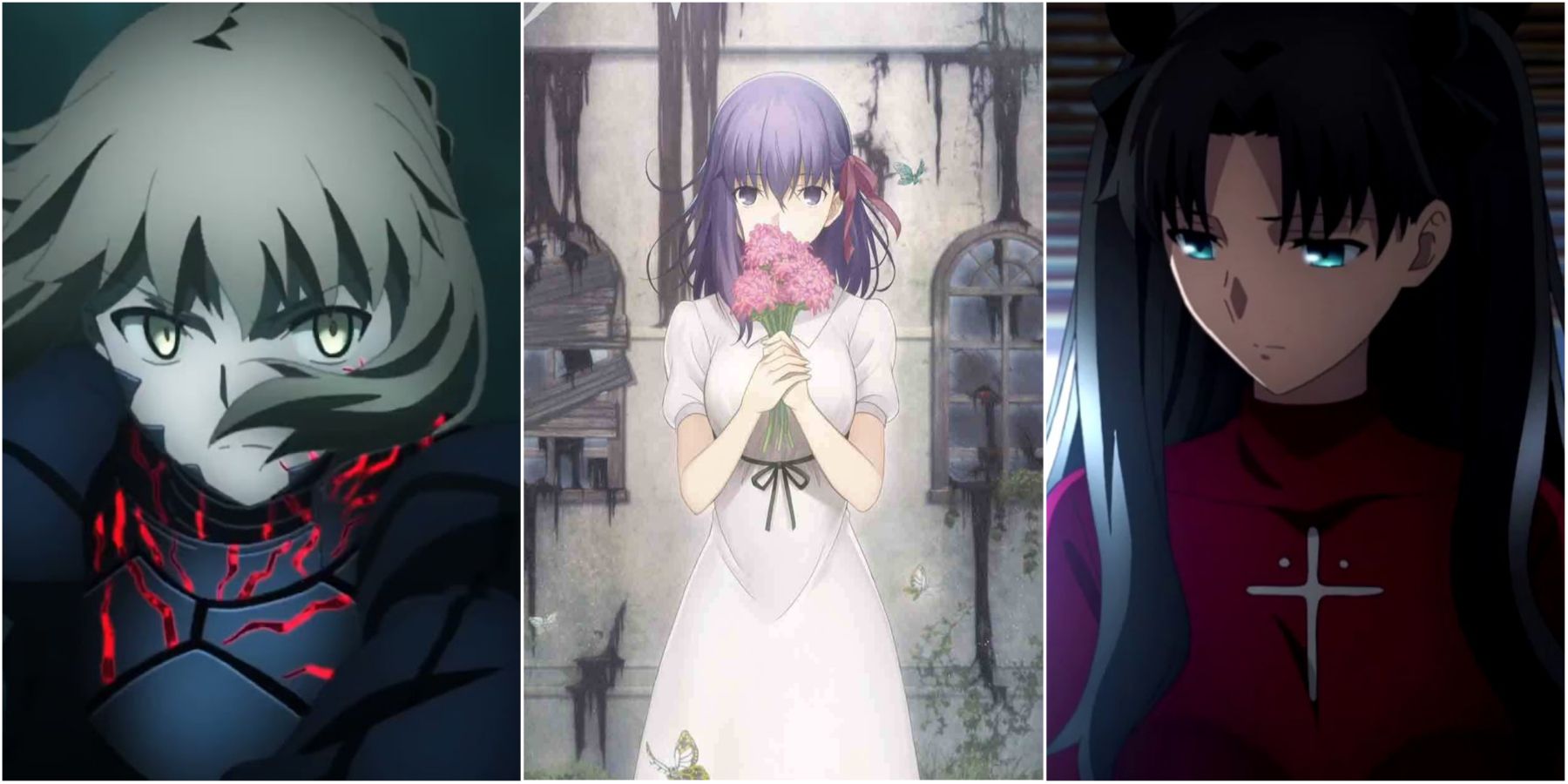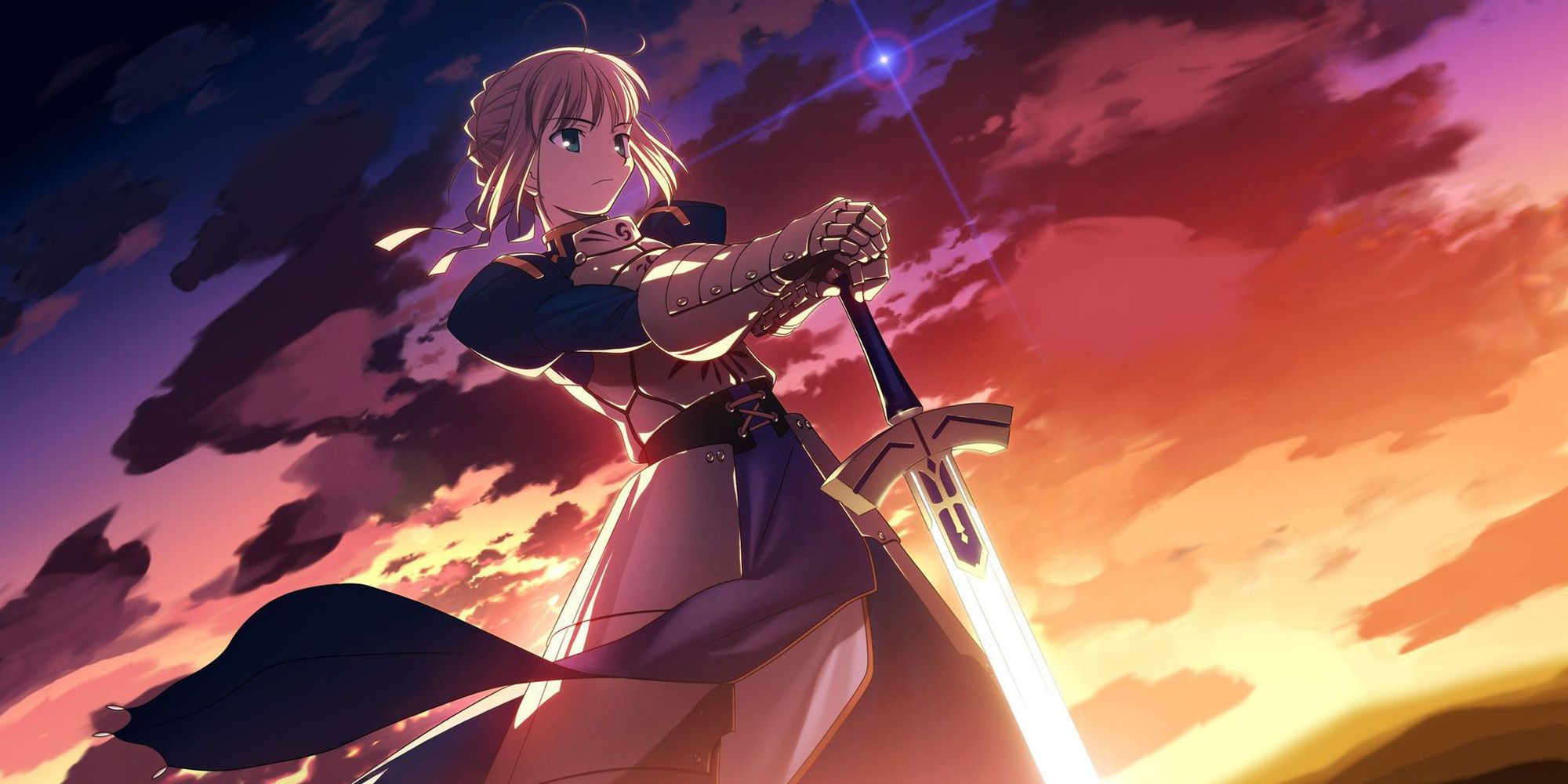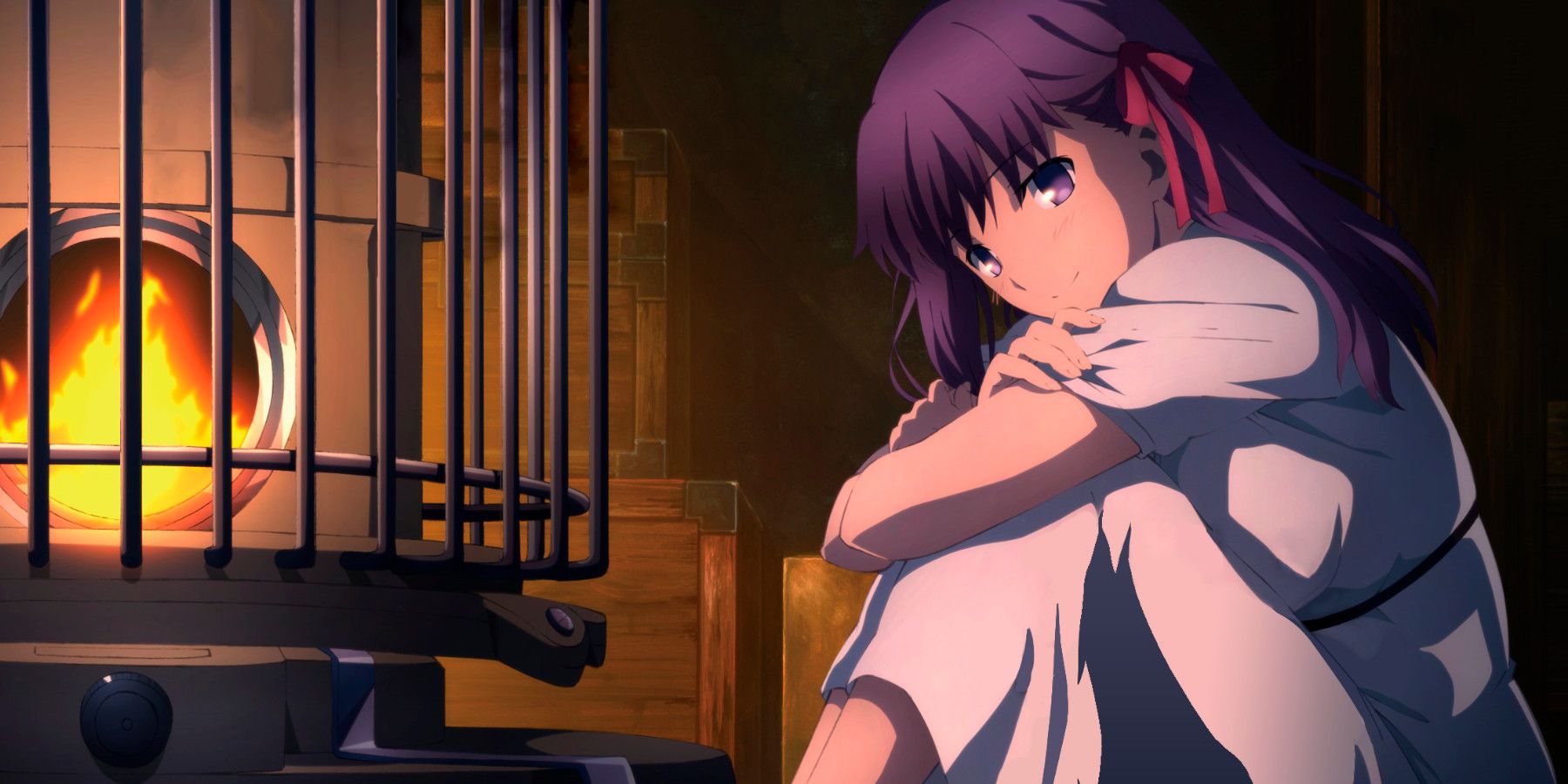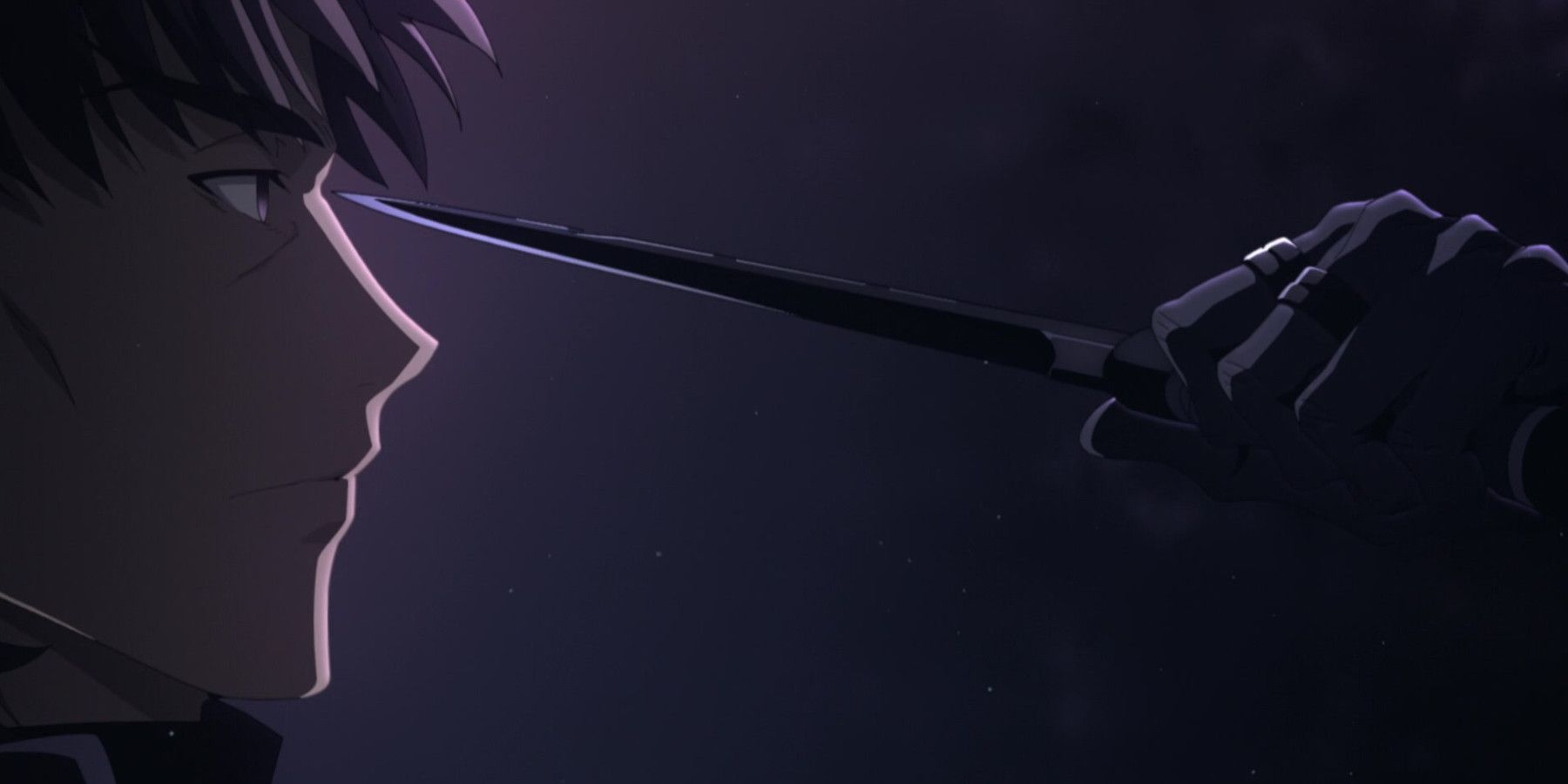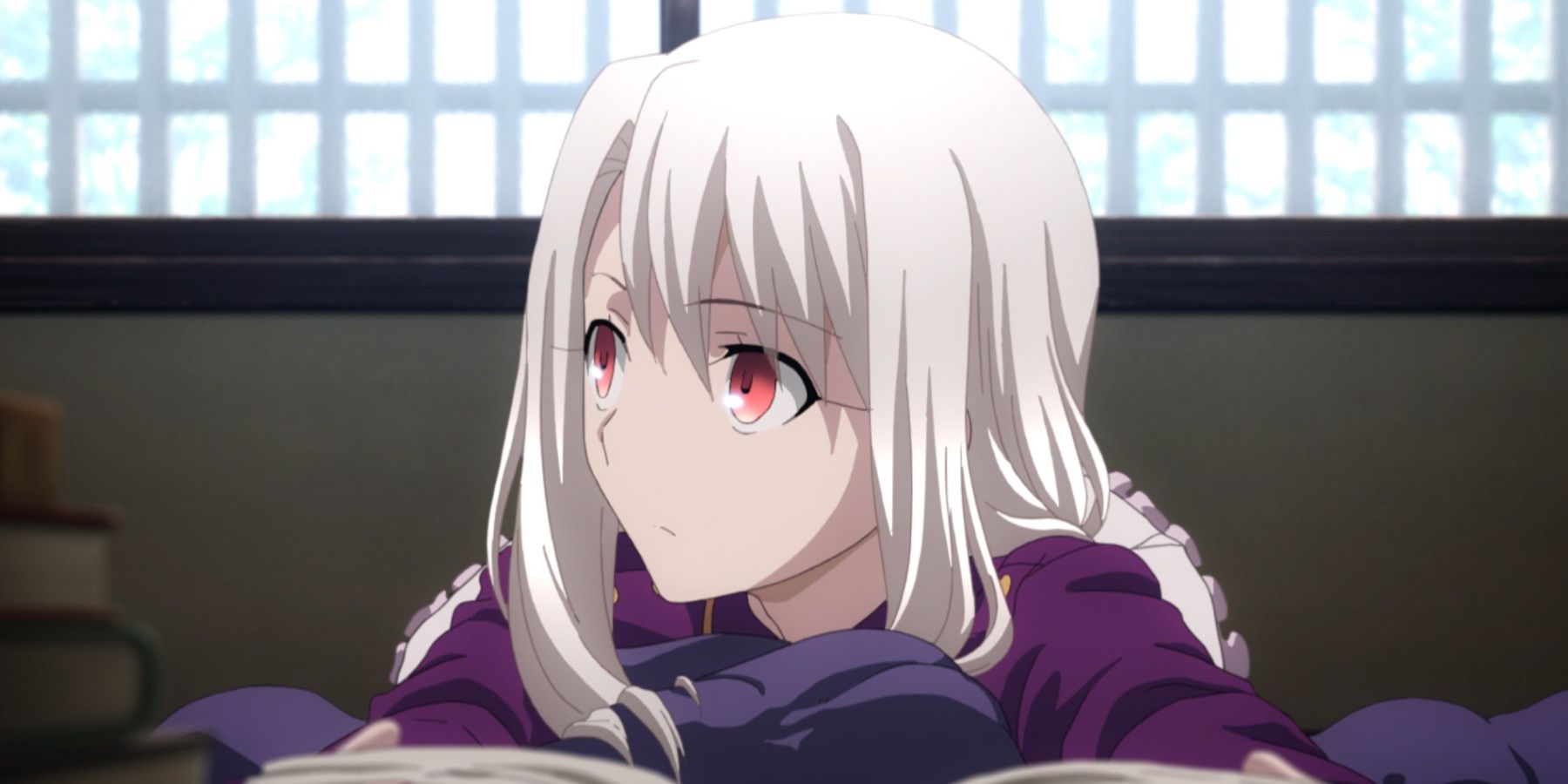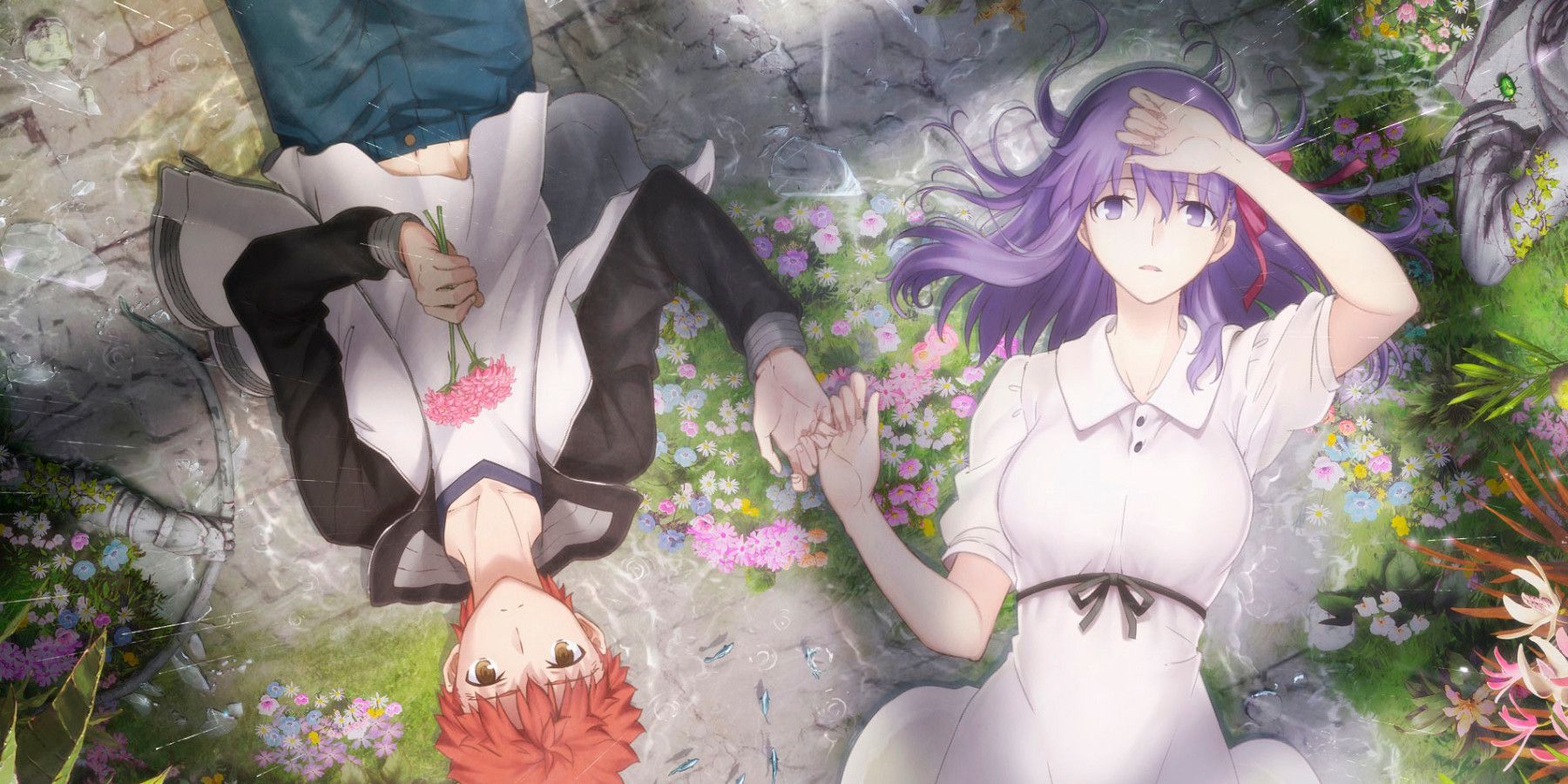When studio Ufotable created Fate/Zero, they became what many considered the definitive studio to bring Kinoko Nasu's Fate series to life. After a successful TV adaptation of the Unlimited Blade Works route of the original visual novel, fans eagerly awaited when Fate/Stay Night: Heaven's Feel would be put to animation.
Starting in 2017, Ufotable and director Tomonori Sudou produced Heaven's Feel as a trilogy of films rather than a TV series like UBW, with the second film releasing in 2019 and the third in 2020. The film tells of Shirou's twisted romance with Sakura Matou, who descends further into darkness under the corrupting influences of evil magic. There are many reasons why people enjoy the Heaven's Feel route and feel that it is one of the best of the three. It's one of the darkest and while all three routes are in some way love stories, it is the most tragic and dramatic of all the romances. There is a sense of finality in the way characters are picked off one by one in this route that builds to a crescendo on another level from the other routes.
An Abridged Opening
The first film, I. Presage Flower, could not be a more promising start and for many, it was the peak of the adaptation (consider that praise as well as a premonition of criticism to come). The pacing lays the groundwork for its central romance with a delicate hand while simultaneously flowing between action set pieces that are some of the best in the franchise.
The introductory film also justifies itself as a film in how it sidesteps unnecessary repeats. In the original visual novel, players only progressed to the next route once they completed the previous one. Similar events played out, especially early on, but the exposition wasn't repeated, favoring new information.
Heaven's Feel assumes that viewers have seen Unlimited Blade Works and possibly also Fate/Zero, as Ufotable's Fate works are best treated as sequels to each other. All the groundwork laid to convey an understanding of the world and its basic mechanics is left to the TV series. The film is solely committed to progressing with another, darker possibility.
The Twisted Second Act
The sequel film, II. Lost Butterfly, is also argued to be the best in the series, arguably more than the first. In addition to its awe-inspiring action and building intrigue, it is completely devoted to the love story between Shirou and Sakura and defines Shirou's resolve in this arc compared to the others.
Shirou has always been a compelling hero under the surface for how their survivor's guilt and their innate compassion drive them to become a hero, but each arc challenges his ideals in unique ways. In Unlimited Blade Works, his encounter with another version of himself causes him to reaffirm his ideas even if it will bring him pain.
In Heaven's Feel, Shirou's resolve is tested, and out of love he decides to be selfish and strive to fight for those that mean the most to him rather than to be a hero for everyone. It's a compelling change that works thanks to a committed and methodical approach to his relationship with Sakura.
It's also the only route put to animation where Shirou is allowed to be physically intimate on screen, unlike the other routes that kept the romance simple and clean. It was just another way that Heaven's Feel felt distinct as if it was the true conclusion to Fate. Although there was one more film left, fans of the visual novel were already wary of the lack of certain details.
The Two Forgotten Characters
When adapting something as dense as the Fate/Stay Night visual novel, sometimes things get cut, and sometimes these omissions can be overlooked. Part I had some cuts and events told in a different order, but all in service of pacing that better served the film and the trilogy's take on the story. However, two key characters were left out: Illyasviel von Einzbern and Kirei Kotomine.
Illya and Kotomine both had far more screen time in the VN than they did in the Heaven's Feel films, and unfortunately, the lack of them severely cripples the emotional weight of the third film. The final film, III. Spring Song, concludes these characters' arcs in ways that left some fans wanting. It's as if their importance was lessened for the sake of Sakura and Shirou's romance.
Sometimes in adaptations, particularly in film, perhaps supporting characters or ancillary plot threads are sidelined in favor of key characters that advance the core themes of a story. In producing Heaven's Feel, the priority was likely to focus on the love story, but that is only a fraction of what makes this route work.
Illya is Shirou's younger sister who he never truly got to know, and their scenes in Heaven's Feel gave Illya an opportunity to truly connect with Shirou and cease being an antagonist. Similarly, Kotomine, who was more of an outright villain by the end of UBW, had an interesting relationship with Shirou that only deepened both of them.
These characters aren't ultimately unimportant chess pieces on the chopping block like other servants and masters who died like in other films. They are extremely important characters who play big roles up until the last moments. In sacrificing the scenes that built up these relationships, the conclusion suffers fundamentally.
People tend to define each route by the love interest. Fate is Saber, UBW is Rin, and Heaven's Feel is Sakura, but this is just a fun and simplified way of differentiating them, not a comprehensive analysis. Heaven's Feel could just as justifiably be called the Illya route or the Kotomine route, given how important they are.
Was Heaven's Feel Successful?
It depends on the viewer of course, but Heaven's Feel was at its strongest at the beginning, when anime-only viewers had no idea what to expect and the twists and turns kept people guessing. As it went on though, the scope of the story seemed to narrow rather than get larger, focused on a love story that, in all honesty, is only a fraction of what made the story so powerful.
In typical Ufotable fashion, the films look gorgeous and are made even better by Yuki Kajiura's thrilling score. They are extremely well-made films and fans without the context of the light novel can still find a lot to enjoy, but even without knowing about what was taken out, something about the conclusion feels lacking.

